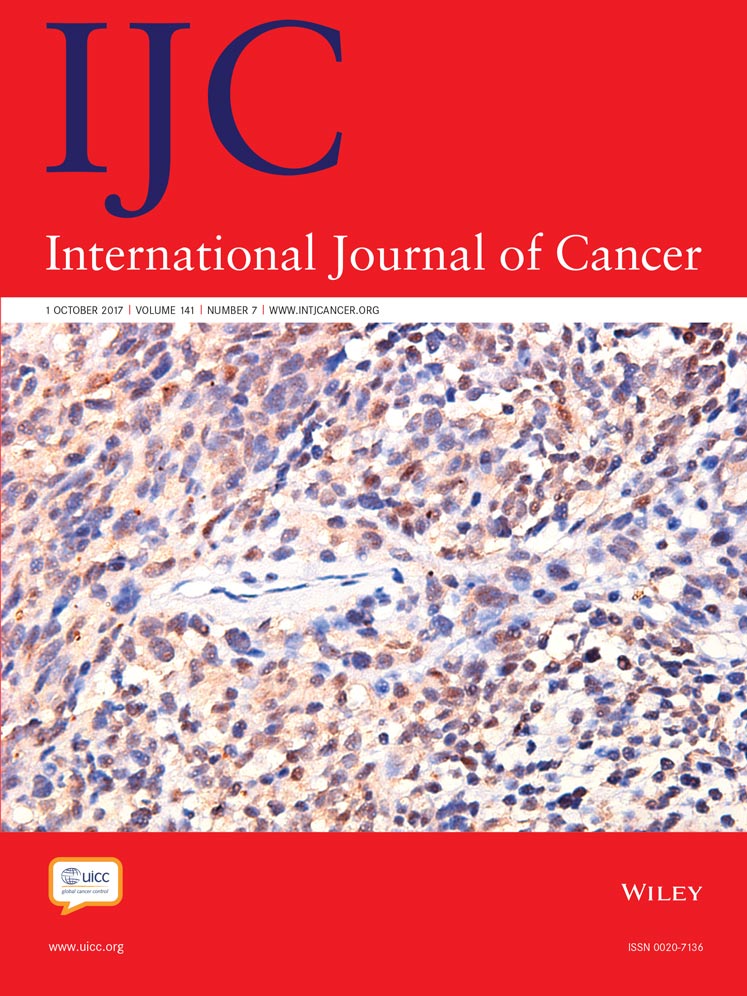Genetic variants in microRNA-binding sites of DNA repair genes as predictors of recurrence in patients with squamous cell carcinoma of the oropharynx
Abstract
The incidence of squamous cell carcinoma of the oropharynx (SCCOP) continues to rise because of increasing rates of human papillomavirus (HPV) infection. Inherited polymorphisms in DNA repair pathways may influence the risk of SCCOP development and the prognosis of SCCOP. We sought to determine whether polymorphisms in microRNA (miRNA)-binding sites within 3′-untranslated regions (3'UTRs) of genes in DNA repair pathways modulate the risk of SCCOP recurrence. We evaluated the associations between nine such polymorphisms and SCCOP recurrence in 1,008 patients with incident SCCOP using the log-rank test and multivariable Cox models. In an analysis of all the patients, patients with variant genotypes of BRCA1 rs12516 and RAD51 rs7180135 had better disease-free survival (log-rank, p = 0.0002 and p = 0.0003, respectively) and lower risk of SCCOP recurrence (hazard ratio [HR], 0.5, 95% confidence interval [CI], 0.2–0.8, and HR, 0.5, 95% CI, 0.3–0.9, respectively) than patients with common homozygous genotypes of the two polymorphisms after multivariable adjustment. Moreover, in tumor HPV16-positive patients, patients with variant genotypes of the same two polymorphisms also had better disease-free survival (log-rank, p = 0.004 and p = 0.003, respectively) and lower recurrence risk (HR, 0.2, 95% CI, 0.1–0.6, and HR, 0.2, 95% CI, 0.0–0.7, respectively) than patients with common homozygous genotypes of the two polymorphisms. No such significant associations were found for other polymorphisms. These findings support significant roles of BRCA1 rs12516 and RAD51 rs7180135 in modifying the risk of recurrence of SCCOP, particularly HPV16-positive SCCOP. However, these results must be validated in larger studies.
Abstract
What's new?
Two polymorphisms have been identified in DNA repair pathways that affect the recurrence risk of oral cancer. Cases of squamous cell carcinoma of the oropharynx (SCCOP) are on the rise, partially due to increasing rates of HPV infection, and these cancers frequently come back after treatment. In this study, the authors investigated polymorphisms in miRNA binding sequences in DNA damage repair genes, seeking a genetic explanation for recurrence risk. They found that patients, particularly those positive for HPV-16, carrying variant genotypes in BRCA1 rs12516 and RAD51 rs7180135 had better disease-free survival and lower recurrence rate than those carrying homozygous genotypes.




